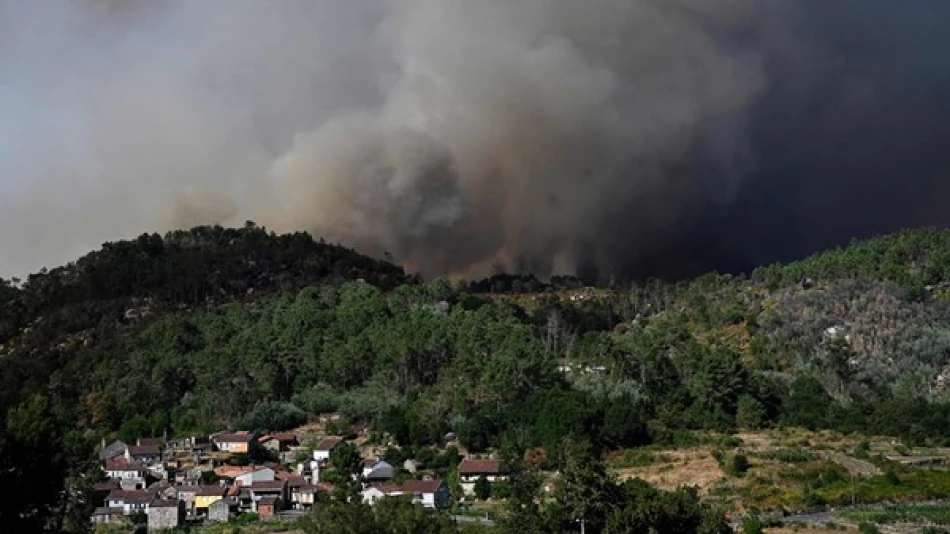
Spain Battles Massive 20-Wildfire Crisis, Mobilizing Emergency Response
Spain Deploys Military as Record Wildfires Overwhelm Emergency Response
Spain has mobilized 1,900 military personnel to combat 20 massive wildfires ravaging the country, as soaring temperatures up to 45°C hamper containment efforts. The deployment represents one of the largest domestic military operations in recent memory, highlighting how climate-driven disasters are forcing European governments to treat wildfires as national security threats rather than regional emergencies.
Crisis Reaches Breaking Point in Northwestern Spain
The situation deteriorated rapidly in Galicia, northwestern Spain, where multiple fires merged into a single mega-blaze, forcing authorities to close highways and suspend rail services. Prime Minister Pedro Sánchez announced the deployment of an additional 500 emergency military personnel during a press conference in Ourense, one of the hardest-hit areas.
"There are still some difficult days ahead. Unfortunately, the weather is not in our favor," Sánchez warned, as meteorologists predicted temperatures would continue climbing before relief arrives Tuesday.
Southern Europe Faces Worst Fire Season in Two Decades
Spain's crisis reflects a broader pattern across southern Europe, which is experiencing its most devastating wildfire season since the early 2000s. The fires have already claimed three lives in the past week alone and consumed over 115,000 hectares of land—an area larger than Los Angeles.
Portugal is simultaneously battling large-scale blazes, creating a cross-border emergency that stretches regional firefighting resources to their limits. This coordinated crisis mirrors similar patterns seen in California and Australia, where climate change has extended fire seasons and increased their intensity.
Human Factor Complicates Natural Disaster Response
Interior Ministry data reveals a troubling dimension to Spain's fire crisis: authorities have arrested 27 people and are investigating 92 others for suspected arson since June. This suggests that while extreme heat and drought create the conditions for massive fires, human action—whether accidental or intentional—often provides the spark.
The scale of suspected arson cases indicates that Spain's wildfire problem extends beyond climate factors alone, requiring both environmental adaptation and enhanced law enforcement strategies.
Military Deployment Signals New Era of Climate Response
Spain's decision to deploy nearly 2,000 military personnel for wildfire suppression represents a significant escalation in how European governments approach climate emergencies. This militarization of disaster response follows similar patterns in other fire-prone regions, where traditional civilian emergency services have proven insufficient against increasingly severe blazes.
The military deployment also carries economic implications, as the cost of emergency response, infrastructure damage, and agricultural losses will likely strain public finances and potentially impact Spain's tourism industry during peak summer season.
Regional Cooperation Becomes Essential
As fires simultaneously rage across Spain and Portugal, the crisis underscores the need for enhanced regional coordination in fire prevention and response. The European Union's emergency response mechanisms are being tested by the scale and simultaneity of these blazes, potentially accelerating discussions about shared firefighting resources and coordinated early warning systems.
With climate scientists predicting more frequent and intense heat waves across the Mediterranean basin, Spain's current military mobilization may represent the new normal rather than an exceptional response to an extraordinary crisis.
Most Viewed News

 Layla Al Mansoori
Layla Al Mansoori






